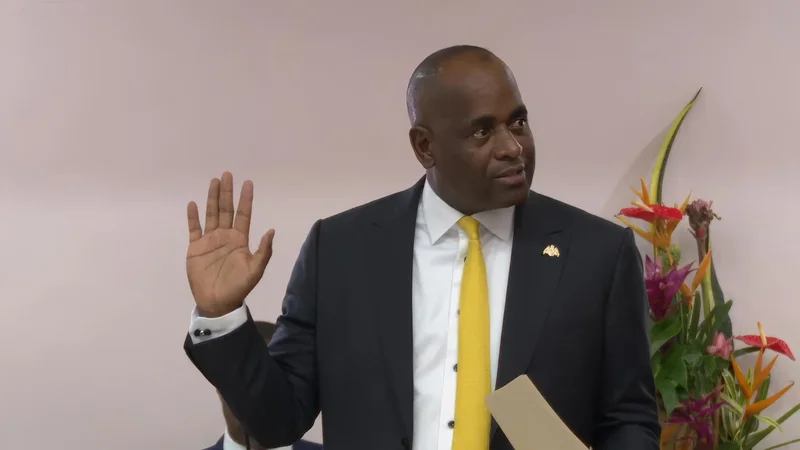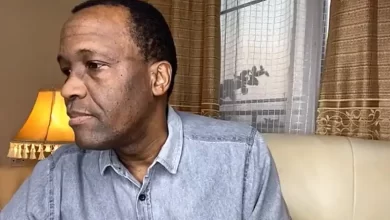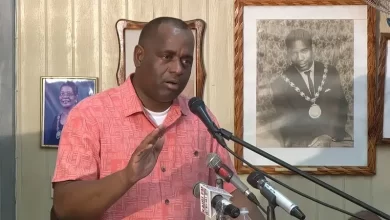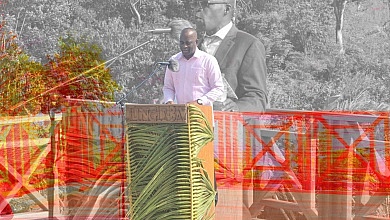
So I had a whole week and a half to really reflect on the Prime Minister’s two-hour contribution during the budget debate, and I have a lot to share. The time away from the immediacy of the chamber allowed me to let the words settle, to think about the moments where he seemed fully in command, and the ones where his body language told a slightly different story.
From the first words, he leaned heavily into gratitude, acknowledging Parliament, citizens at home and abroad, the private sector, and communities that continue to place their trust in him. On paper, it sounded warm and unifying. In the chamber, it sometimes felt more like a reminder to himself of why he still stands at that podium.
The praise for those who have invested in Dominica was genuine. So too was his recognition of public officers, farmers, returning nationals, and young people pushing ahead. Yet, in between the polished acknowledgments, there were flickers, pauses a second too long, a certain narrowing of the eyes, that hinted at something else. After more than two decades in high office, a man can be grateful and tired at the same time. You could see it when he mentioned working “together” with the private sector, but his tone hardened just slightly, as if the word was more aspiration than reality.
There was pride, yes. But also the weariness of someone who has defended the same ground for years, who has seen old arguments return with new packaging. The speech had the air of a man telling his story not just to convince the public, but to remind himself that it’s still worth telling.
Praise, Frustration, and the Politics of Restraint
Much of the address walked a careful line between celebrating accomplishments and recognising challenges. He painted his government as responsive, prudent, and committed to listening. He credited consultations for shaping the budget’s policies and insisted on fiscal discipline to protect the country from reckless decisions.
But for all the praise he gave his team, there were moments where the silences spoke louder. His words didn’t directly criticise anyone in his party, yet there were times when the praise for “those who work hard and remain committed” felt… selective. The kind of selective that makes you wonder if, behind closed doors, he’s dealing with fatigue over colleagues who aren’t pulling their weight.
He never said it outright, perhaps out of loyalty, perhaps out of political survival, but the slight tightening of his jaw and the measured delivery in these moments seemed to carry a private message for those who know.
In praising government unity, he also brushed past the more uncomfortable truth: unity can look tidy in a televised chamber, but away from the cameras, politics is messier.
Watching the background, you could see his DLP colleagues smiling, laughing in all the right places. It looked warm on the surface. But the smiles didn’t always match the eyes. Sometimes it seemed less like they were sharing in the moment, and more like they knew they were supposed to share in the moment.
A Leader’s Humanity in the Midst of Political Theatre
One of the more human elements of the speech came in his reflections on past struggles, not just national ones, but personal trials on the road from student to leader. He reminded the chamber of his early days, the mentors who shaped him, and the hard lessons along the way. These weren’t just nostalgia trips; they were his way of anchoring today’s policies in the long arc of his own life.
And yet, there’s a risk in leaning so heavily on personal narrative. At times, it blurred the line between a defence of policy and a defence of self. He framed his leadership as part of the nation’s own evolution, and while that can be inspiring, it also invites scrutiny: if the leader’s journey is so tightly bound to the nation’s, then the nation’s disappointments inevitably reflect back on the leader.
You could also sense that the long years in power have deepened his understanding of the country’s fragility, but perhaps also narrowed his tolerance for criticism. There were moments when his body language suggested he was holding back. His eyes would drift briefly when opposition points were implied, his voice would tighten when mentioning public patience. It was the physical language of someone who has heard the same demands many times before and knows he can’t give every answer people want.
Hope, Fatigue, and the Path Ahead
For all the weariness beneath the surface, the PM Roosevelt Skerrit still spoke of hope. He framed the national budget as a platform for opportunity, a product of listening to citizens, and a promise that his government remains alert to the needs of the people. These were the strongest, most convincing parts of the address, the moments where you could believe he still wakes up ready to fight for his vision.
But hope was balanced by a defensive edge. When he described the budget as offering dignity and better lives, the conviction was clear. Yet when he hinted at those who “say nothing is happening” or downplay achievements, the tone turned sharper. It was here that you could sense the strain, not just of leading through crises, but of having to constantly justify the same priorities to the same critics.
There were also the things left unsaid. He didn’t address internal party discipline, but it was hard to shake the impression that it was on his mind. He didn’t openly confront frustrations with slower-than-expected projects, but he lingered just long enough on the value of persistence to suggest he knows delays are testing public patience.
And then there’s the quiet question his speech left hanging: how much longer does he want to keep doing this? Not because he can’t, he still commands the room, but because the effort it takes to hold it all together is visible now in the set of his shoulders and the way he sometimes lets his voice soften at the end of a sentence.
In the end, his budget debate performance was a mixture of the public leader and the private man. The public leader defended his record, praised his team, promised prudence, and projected confidence. The private man, glimpsed in pauses, in controlled expressions, in the way his gaze sometimes wandered, seemed to be quietly reckoning with the limits of politics, the stubbornness of problems, and the loyalty tests of long leadership.
It was a speech of pride, but also of patience worn thin. Of accomplishments recited, and disappointments unspoken. And in those unspoken parts, there may have been as much truth as in the lines delivered for the record.
This article is copyright © 2025 DOM767








